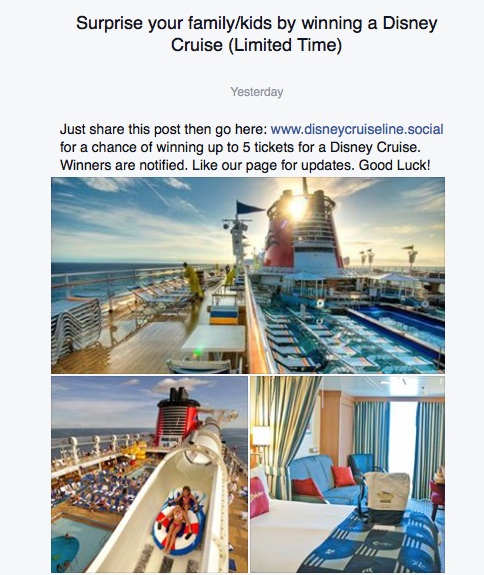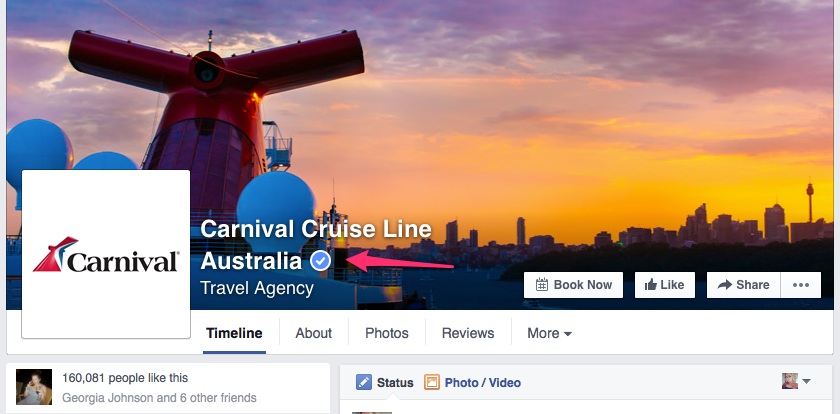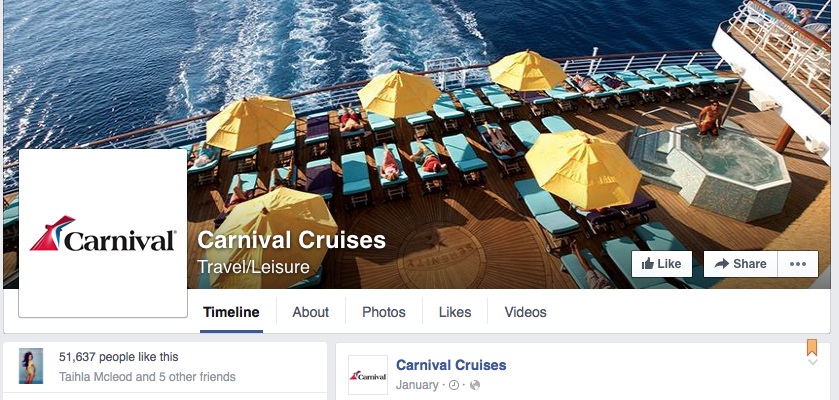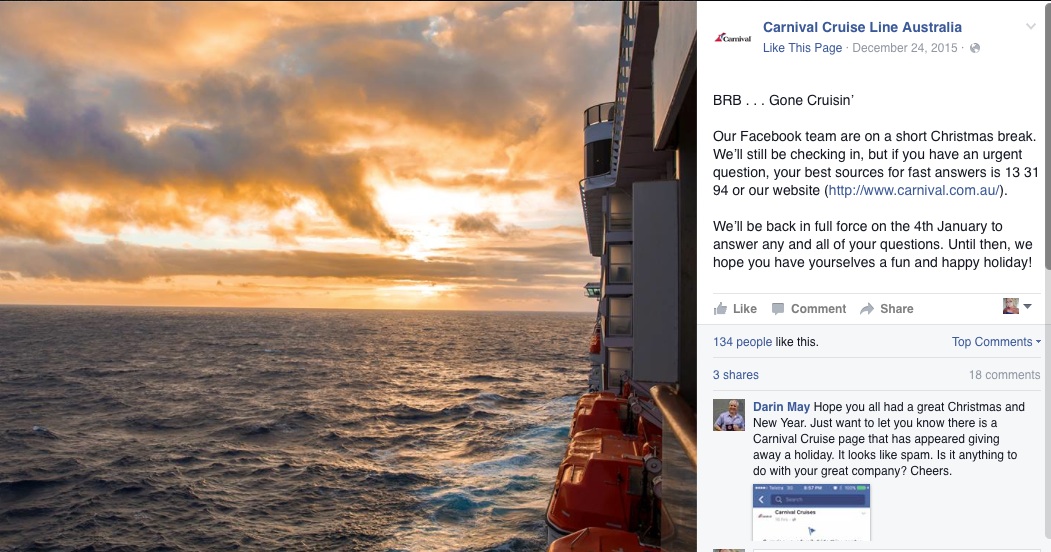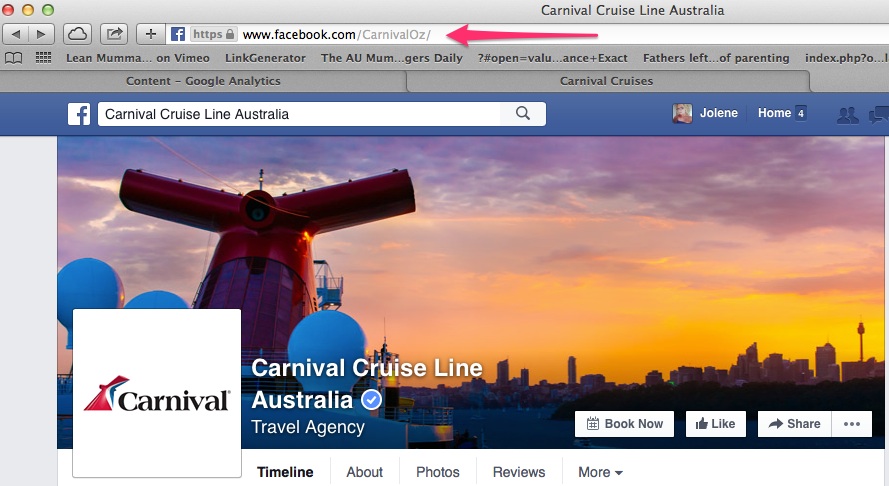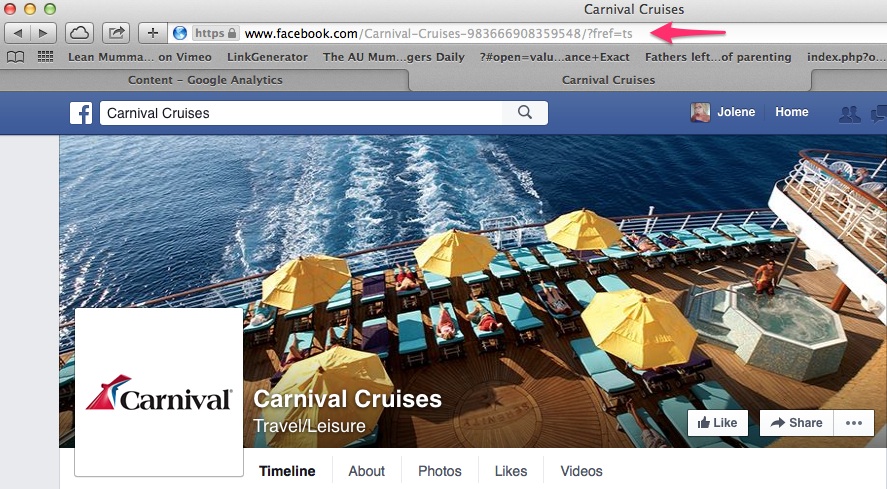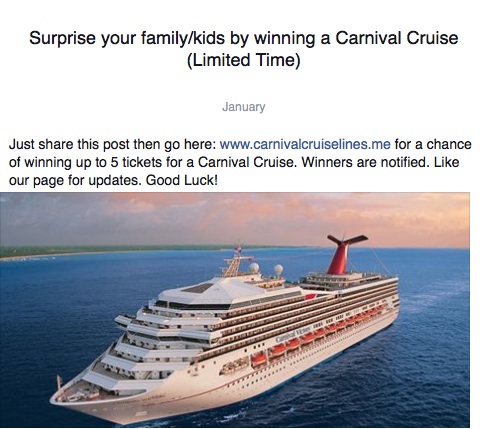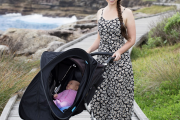7 Signs That Awesome Facebook Competition is a Scam
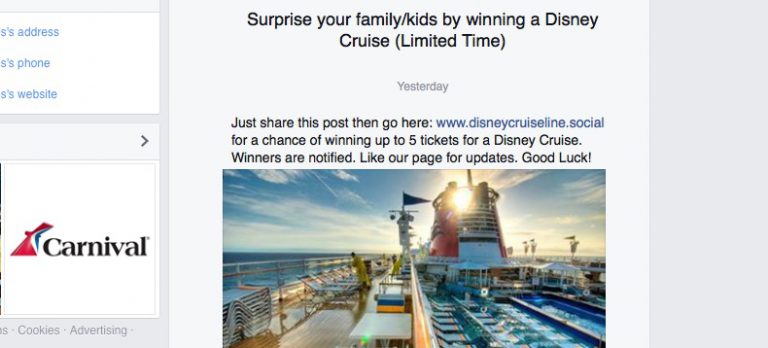
It’s possible by now that you’ve seen the Carnival Cruise competition in your Facebook newsfeed to win a family cruise for 5, maybe you even shared and entered it yourself.
Unfortunately, this very tempting giveaway is in fact a scam.
One of the pitfalls of social media is that it makes it very easy for scammers to take advantage of unsuspecting internet users. However there are some easy to spot red flags that a giveaway or offer isn’t legit, if you know where to look.
That’s why we have put together this handy guide so next time you or your friends see a competition or giveaway that looks too good to be true, you’ll be armed with the knowledge to deduce whether it’s legitimate or a scam.
7 Signs That a Facebook Competition is a Scam
- Look for the Blue Checkmark to show it is verified
One of the simplest ways to see if a Facebook page has been verified is to look for the blue checkmark next to their name. Big brands will be verified by Facebook.
The real Carnival Cruise Facebook has a blue checkmark beside the page name.
The scam account does not have the blue checkmark beside it.
2. If in doubt Google!
Just as we do ‘these days’ with everything else we are unsure of – Google it.
Type in the ‘brands name’ and ‘Facebook’ and you’ll find the real Facebook page.
In this instance you’ll see that the last post on the real Carnival Cruise page states that their social media team will be taking a break for Christmas and will return on the 4th January – leaving an opening for scammers to jump in and take advantage of their absence!
3. Look at the About section of the page
A business will have as much information about their brand in this section as possible, including where to find them, how to contact them, their website address etc.
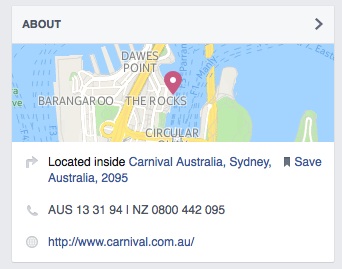
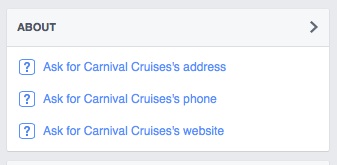
4. Look at the other posts on the page
Does the page have a history of engaging posts or does it only have 1 or 2 posts related to the competition/giveaway over the past week? Given the power of social media, It’s highly unlikely that a brand such as Carnival Cruises would only have started a Facebook page this week, isn’t it?
5. Look at the Facebook page URL
Facebook allows businesses to set up what is known as a vanity url when they have over 25 likes. This means that instead of having a string of unattractive and confusing letters and numbers after the name, it can simply have it’s brand name.
For example, this is the url of the verified Carnival Cruise Facebook page:
and this the URL of the fake page…
Whilst this doesn’t always prove that a Facebook page is a fake or a scam (particularly with smaller businesses who may not know about the vanity url), it is safe to assume that many of the big brands who employ social media staff will have a vanity url.
6. Look at the link that the page asks you to follow
Does the link that the page directs you to click to enter contain any unusual suffixes?
In this case the link ends in .me
Whilst it can denote a website originating in Montenegro (much like ours is .au for Australia) it can also point to the fact that it is a site set up for personal use such as domain.me sites. We can assume that a large Australian company wouldn’t use either.
Tip: Many scams, viruses and phishing scans use url links that end in .me.
7. Look for legal terms and conditions
Big brands and businesses are sticklers for terms and conditions when running competitions and giveaway. The absence of terms and conditions can be a red flag that something is awry.
What to do if you suspect a Facebook competition is a scam
- Report the page to Facebook as a scam
- Leave a comment on the real page alerting them to the scam
- Share this article with your friends and family so that they too will be better equipped to spot a scam themselves in the future.

